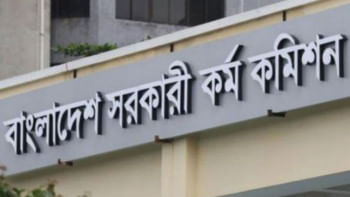DEATH BY NEGLECT

A large signboard hung outside a small pharmacy located inside the Mohammadpur Geneva Camp says, "Doctor Available for Consultation," but in the 12 years since this pharmacy was established, not once has a doctor stepped into its premises. "We sell the medication at government rates, we do not provide subsidised medication to cater to the people in these camps," says Harurnur Rashid, the pharmacist.
This is true for all the pharmacies inside the camp. As for the sole medical centre located here, established by Al- Falah Bangladesh, an NGO that has been operating in the area for over a decade, the service leaves much to be desired. "There is a large building inside the camp called Al-Falah Model Clinic," says Abdul Jabbar Khan, President of the Stranded Pakistani General Repatriation Committee (SPGRC). "For some reason they have started a school inside this centre for a handful of children from whom they charge a fee," he says. "They then take photos of these children and put them in their brochures and websites saying they are doing charity work here. The rest of the building is empty, and the doctors visit infrequently," he continues. "When other NGOs that are interested in helping us come here and see this building, they automatically think we are already being taken care of, when this is not the case."
"If people in the camp fall seriously ill, most cannot afford treatment and die," says Mohammad Islam, a watchman who has lost his job since his heart attack five months ago, which left him paralysed. "I went to three different hospitals, but I could not afford the cost of admission. I lost the use of my arm and can no longer work," he tells us.

"Currently there are no NGOs assisting us with medical care," says Abdul Jabbar Khan, "For every child delivery we pay government hospitals, Tk 6,000 - 7,000. None of these hospitals will give us free treatment."
"I have just admitted both my children into a hospital," says Mohammad Amir, "I still don't know how I will pay the bill, but they both have severe diarrhoea and if I did not do something immediately they would have died."
Another camp dweller, Shabnam Kurban lost her husband 5 months ago – a month after their youngest child was born. "My husband was very unwell. I am an uneducated woman and I did not know what was wrong with him," she says. "They tell me he had cancer. We took him to Bangladesh Medical, Sarwardi Hospital and Azimpur Medical, but we couldn't afford the treatment anywhere. I have three small children and my mother-in-law to support, with no steady source of income. I don't know how we will survive."
There are many organisations that claim to work for the residents of these camps, raising money from private donors, but a very small portion of this money is actually put to their use. "This place is like a showroom where they bring donors to show them our pitiable condition, but ultimately not much happens," says Abdul Jabbar. "Everyday, more of our people are dying. It feels like a slow poisoning process. No-one wants us, so we have been left here to die."


 For all latest news, follow The Daily Star's Google News channel.
For all latest news, follow The Daily Star's Google News channel. 



Comments